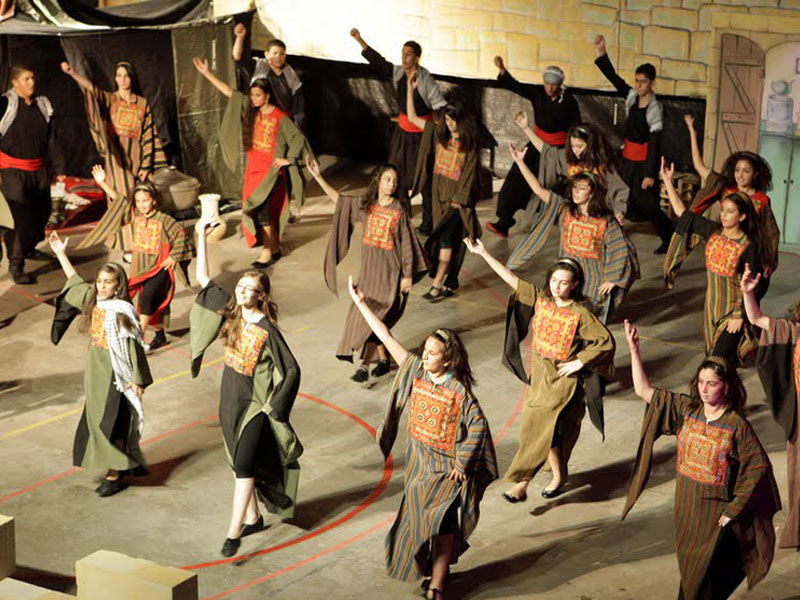Palestinian Folklore
Issue 14

Eman Sulaiman (Palestine)
Folklore reflects culture. Due to the diversity in the standards used to define folklore, definitions are elusive and ambiguous. Some cultural standards emphasise the oral aspect of folklore, some emphasise the psycho-social aspects of rural life and some stress the role of the individual-community construct in folk culture (the individual represents the culture of his community in his actions, thoughts and feelings because he is a product of his community).

The ethnological standards define folkloric stories as knowledge passed from father to son and neighbour to neighbour as opposed to knowledge passed on in formal education.
Folklore can take the form of the folktale, proverbs or folk songs.
Palestinian folktales:
Palestinian folktales include well-known stories that emphasise social, aesthetic, national, religious and cultural values. The stories can be categorized thematically as fantasy, animal fables, realism, instructional, religious, historic Bedouin tales, humorous tales and stories that explain the origins of proverbs.
Proverbs:
The colloquial proverb combines a common experience with a moral that advises for or against an act. It is a plot in an eloquent, well-structured, concise sentence and a form of oral legacy that is popular among all social classes.
Colloquial Palestinian proverbs represent life in a land that extends from the sea to the river and from the desert to Galilee, hence a proverb may be adapted to reflect the environment of the speaker or that of the audience

Popular songs:
Scholars have paid more attention to Palestinian popular songs than to other popular arts. Lyrics and music are composed over generations, and these songs reflect the strong connection between the collective conscience and the people’s dreams of land and soil blended with blood and toil. These songs reflect the Palestinians’ pride in their values, traditions, sacrifices and aspirations and their ambition to live in freedom and dignity.



































































